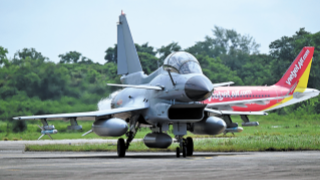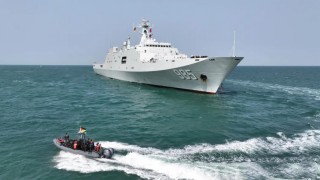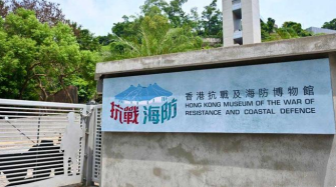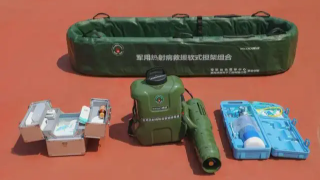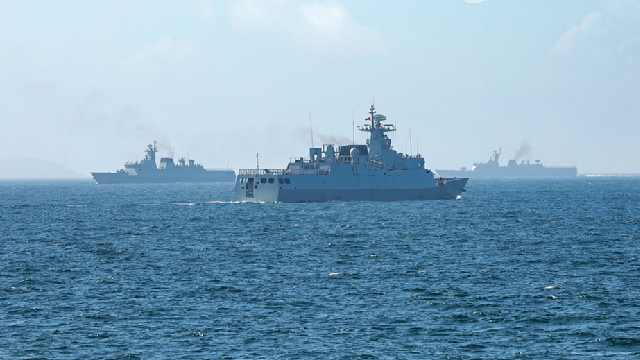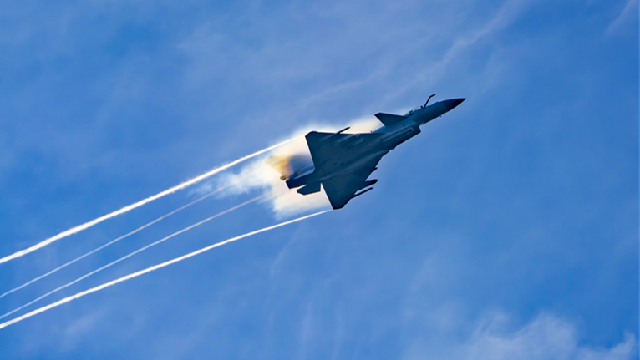By Yu Hailong
Japan and the Philippines' official signing of the Reciprocal Access Agreement (RAA) on July 8 made their security cooperation all but an alliance. The latest RAA is the third security cooperation document assuming the quasi-alliance nature for Japan after signing it with Australia and the UK. In recent years, the Japanese government, based on its alliance with the US, has kept conducting quasi-alliance-like bilateral or minilateral security cooperation with other countries, severely challenging the order and stability in the Asian-Pacific region.
For years, the Japanese government, turning a blind eye to the explicit provisions of its pacifist Constitution, has kept strengthening its alliance with the US, and constantly violated the "Three Principles on Transfer of Defense Equipment". It has exported weapons and equipment to the Philippines and other countries by taking advantage of the Official Security Assistance (OSA) and forged a series of quasi-alliance security cooperation by signing the RAA with the UK, Australia, and the Philippines. Its actions have damaged the peace and stability prevalent in the post-WWII international order, instigated confrontation and rivalry between countries, and made the pacifist Constitution an empty shell.
The signing of the RAA between Tokyo and Manila is the result of the intensified rightist tendency and the growing popularity of new nationalism in Japan. Clearly China-targeted, the document is posing a severe challenge to Asian-Pacific stability and development, notably in the following aspects.
First, the RAA between Tokyo and Manila complicates the South China Sea issue by aggravating the territorial and maritime disputes between China and the Philippines in the region. The disputes are bilateral affairs that should have been addressed by the two countries directly involved. As a country not directly concerned and not even in the South China Sea region, Japan's meddling will only complicate the matter. It will further encourage the Marcos administration's wrong perception of its relations with China and create more obstacles to solving the disputes.
Second, the RAA hinders high-level economic and trade cooperation in the region. The Asia-Pacific is one of the most vibrant regions in the global economy for its thriving economic integration and cooperation. However, Japan and the Philippines, as important members of the Regional Comprehensive Economic Partnership (RCEP), have not been active in enhancing and upgrading the partnership. Rather, they have been focused on hyping up the so-called "China threat" on the maritime issue and have been groundlessly defaming and smearing China's normal actions in defense of its legal rights and interests. The Tokyo-Manila RAA, which stresses security and intensifies their security cooperation, will draw relevant countries' attention further to the security domain, or make regional countries over-cautious about conducting mutually beneficial economic and trade cooperation. It may even turn economic issues into security issues, impair the efficacy of RCEP cooperation, and hinder economic integration and cooperation in the Asia-Pacific region.
Third, the RAA increases the risk of a "new Cold War", in which Asian Pacific countries will be divided into a bloc confrontation. With the intensification of strategic competition between China and the US, the geopolitical landscape in the Asia-Pacific has become more complex. As a major country in the region, Japan has carried out bilateral or multilateral military exercises with the Philippines, provided security assistance to it, spurred Manila to take a tough stance against China on the South China Sea issue and root for its wrong actions. Now Japan, based on the Japan-US and US-Philippines alliance, has signed the quasi-alliance agreement with the Philippines, which will give a strong boost to the Japan-US-Philippines and Japan-US-Philippines-Australia minilateral security cooperation and largely increase the risk of bloc confrontation in the South China Sea.
In today's world when the deficit in peace, security, trust and governance is continuously widening, the quasi-alliance partnership between Tokyo and Manila that is densely clad in a "Cold War" cloak will seriously challenge the interstate relations and regional order in the Asia-Pacific. As the spokesperson of the Chinese Foreign Ministry said at a regular press conference, "The exchange and cooperation between countries should not undermine the mutual understanding and trust between other countries in the region. It should not threaten regional peace and stability, target any third party, or harm the interests of any third party." All countries should actively promote friendly cooperation and make joint efforts to maintain regional peace and stability for the ultimate goal of building a community with a shared future for mankind.
(The author is an associate researcher at the Institute for International Strategic Studies, Party School of the CPC Central Committee.)
Editor's note: Originally published on china.com.cn, this article is translated from Chinese into English and edited by the China Military Online. The information and opinions in this article do not necessarily reflect the views of eng.chinamil.com.cn.

